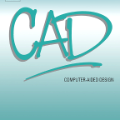Creating a design from modular components necessitates three steps: Acquiring knowledge about available components, conceiving an abstract design concept, and implementing that concept in a concrete design. The third step entails many repetitive and menial tasks, such as inserting parts and creating joints between them. Especially when comparing and implementing design alternatives, this issue is compounded. We propose a use-case agnostic knowledge-driven framework to automate the implementation step. In particular, the framework catalogues the acquired knowledge and the design concept, as well as utilizes Combinatory Logic Synthesis to synthesize concrete design alternatives. This minimizes the effort required to create designs, allowing the design space to be thoroughly explored. We implemented the framework as a plugin for the CAD software Autodesk Fusion 360. We conducted a case study in which robotic arms were synthesized from a set of 28 modular components. Based on the case study, the applicability of the framework is analyzed and discussed.
翻译:暂无翻译




